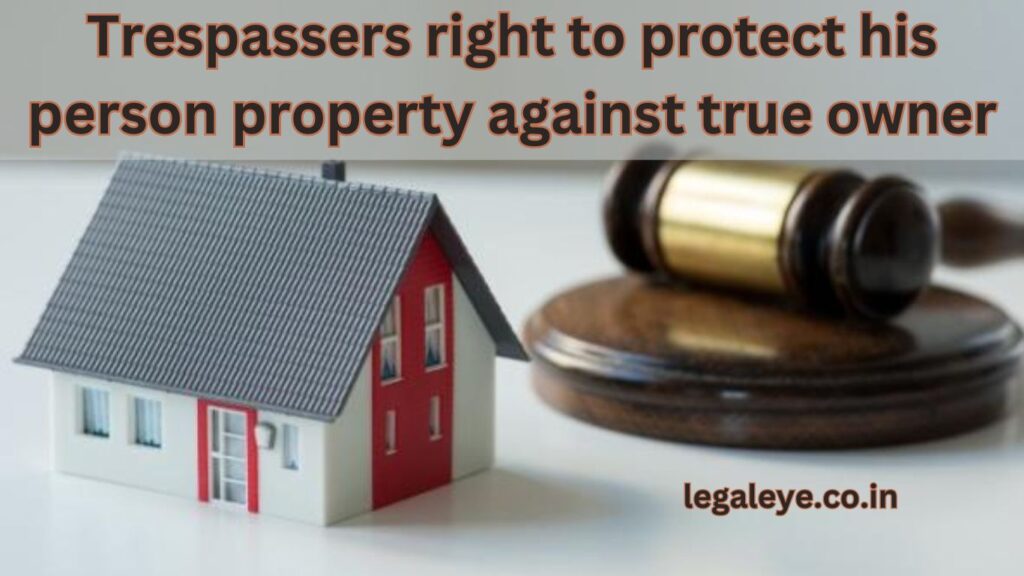
Trespassers right to protect his person property against true owner- As a leading law firm, LegalEye understands the complexities of property rights and the delicate balance between a property owner’s authority and a trespasser’s rights. In today’s blog, we explore a fascinating aspect of property law: the rights of a trespasser to protect their person and property against the true owner.
Trespasser’s entitlement to defend their person and property from the true owner.
When someone hears the term “trespasser,” they often think of an individual unlawfully occupying someone else’s land. In legal terms, trespassing involves entering someone else’s property without permission. However, this topic becomes more complex when the rights of a trespasser are weighed against the rights of the true owner.
In some circumstances, a trespasser may be entitled to certain legal protections, including the right to protect themselves and their personal property from the true owner. Let’s explore this topic in detail.
Trespassers and Their Rights
In most legal systems, trespassers do not possess the same rights as true property owners. However, there are certain situations in which trespassers may be able to assert rights against the true owner, particularly when it comes to protecting their person and property.
Self-Defense
A trespasser, like any individual, has the right to self-defense. If the true owner uses unlawful force or threatens violence, the trespasser may have the right to defend themselves. However, the use of force must be reasonable and proportional to the threat posed.
Protection of Personal Property
If the true owner attempts to unlawfully seize or damage the trespasser’s personal property, the trespasser may have the right to take legal action to protect their property. This includes filing a lawsuit for damages or seeking a restraining order to prevent the true owner from interfering with the trespasser’s property.
Adverse Possession
In some jurisdictions, a trespasser who has occupied a property for a certain period of time may acquire legal rights to the property through adverse possession. This requires the trespasser to openly and notoriously occupy the property, treating it as their own, for a continuous and uninterrupted period.
Requirements for Adverse Possession
- Open and Notorious Possession: The trespasser must occupy the property in a visible manner, such that the true owner or public would be aware of the occupation.
- Exclusive Possession: The trespasser must be the only one occupying the property.
- Hostile Possession: The trespasser must occupy the property without the true owner’s permission.
- Continuous Possession: The trespasser must occupy the property for a continuous and uninterrupted period, which varies by jurisdiction.
If a trespasser successfully meets these requirements, they may be able to claim legal ownership of the property.
Conclusion
Trespassers right to protect his person property against true owner- The legal relationship between a trespasser and a true property owner is complex and often requires a nuanced understanding of property law. LegalEye advises clients on these matters to ensure their rights and interests are protected. If you are facing a dispute related to trespassing, we encourage you to seek legal advice from a qualified civil lawyer who can help you navigate these challenging legal issues.

